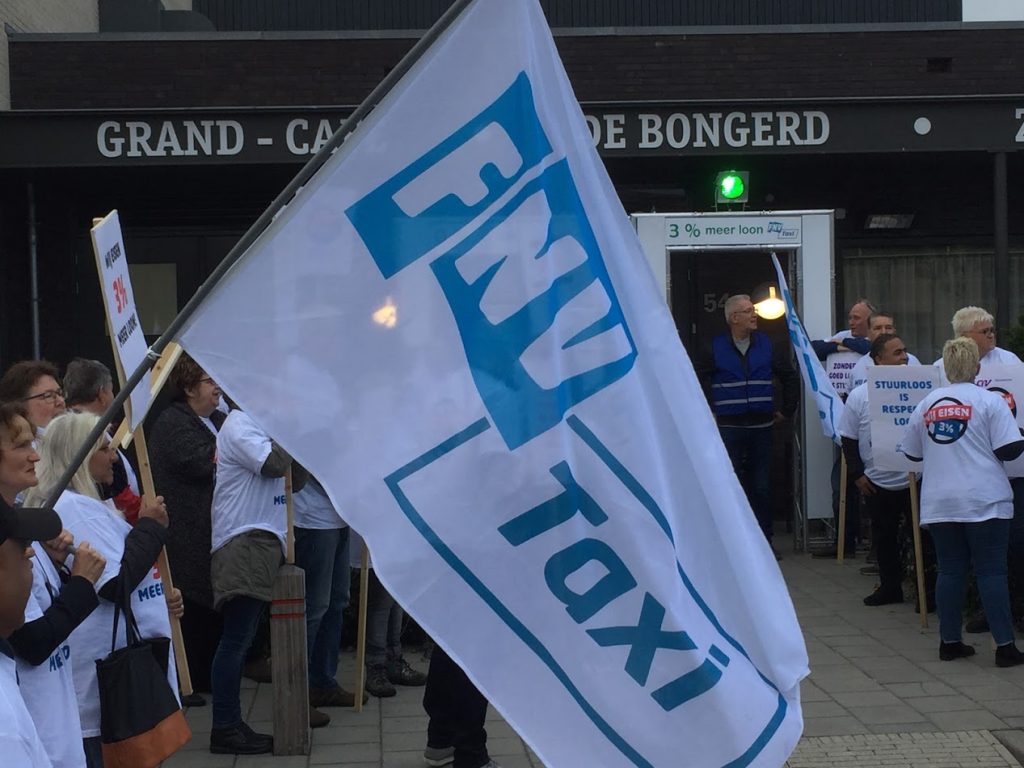Drivers at taxi and care transport companies are at risk of becoming the victims of the poor implementation of the new collective labor agreement agreements on breaks. The trade journal Passenger Transport Magazine writes that according to FNV, the division at the employers' organization KNV is the cause of the lack of clarity about the new rules.
“We have asked the KNV to properly inform their supporters about the agreements, to ensure that drivers receive what they are entitled to according to the collective labor agreement.”
Meindert Gorter, director FNV Healthcare Transport & Taxi
The new break rules came into effect on 1 March, as agreed in the new collective labor agreement of 2022. An employer may deduct up to 12,5% of the availability hours from the salary for breaks, but only if the driver has actually been able to take the break. “We now see that some of the companies withhold the 12,5% standard from their wages, even if the driver has worked through the break. That means that wages are unfairly withheld.”
FNV is not pleased with the attitude of the KNV and some of its members. Gorter: “It is rude that you as an employer have the guts to convert the time worked by your staff into break time. Employers in the sector should be ashamed of the way in which they deal with agreements from the collective labor agreement to which they have co-written and which they have signed themselves. This does not make the sector, which is already desperate for people, any more attractive.”
The new agreements on breaks have replaced the arrangements from the old collective labor agreement. Drivers had to be available, but if there was no work at that time, the driver was not paid either. 'So it could be that as a driver you had a 10-hour shift, but you were only paid for 5 hours. In this way, the entrepreneurial risks were passed on to the drivers. Fortunately, with the new agreements, that is a thing of the past, but then the agreements must be properly fulfilled', says Gorter.
Social Fund Mobility
Trade magazine Passenger Transport Magazine finds it remarkable that, now that entrepreneurs have in principle to pass on working time data to the Social Fund Mobility since 1 March, this has to be done manually, which in turn means an extra burden for the entrepreneurs. An electronic software link for this is not available and does not appear to be forthcoming for the time being. The Eindhoven software company Pitane Mobility has already knocked on the door of SFM to gain insight into the digital link, unfortunately without success. In a recent effort to realize the link, the answer was:Your interest has been noted. Not much news to report at the moment. To be continued."
do not submit anything
In a reaction to this publication, Henk van Gelderen, director of the Social Fund Mobility, said that until the portal is in use, companies do not have to submit anything to SFM. They must work from 1 March on the basis of the new regulations regarding remuneration. So there is absolutely no question of manual input or the like for supplying information to SFM. SFM is currently conducting a feasibility study to investigate the possibilities of automatic links between planning packages and portal. To burden companies as little administratively as possible.
Also read: Social Fund Mobility will soon be watching digitally



